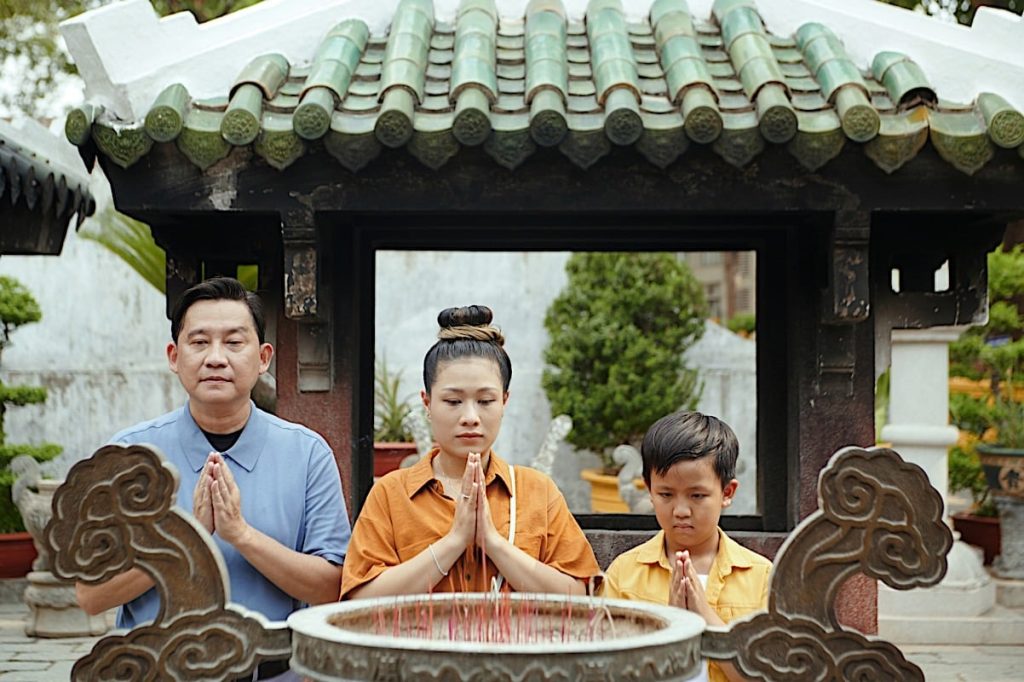
Conflicts in life are inevitable, and Buddha had extensive teachings on the nature of conflict and its remedies. Conflict, like all suffering in Samsara, inevitably arises from the five poisons of Buddhism, the kleshas: attachment, aversion, ignorance, pride, and jealousy. In a close-knit family environment, these “triggers” can be amplified. Karoline Gore explores some of Buddha’s teachings on this important topic. The opinions in this feature reflect the author’s opinions. No advice is offered or given. For serious issues, always consult family experts and your spiritual guide. — Editor
Many of the conflicts that plague families are no different from those we face in daily life outside of the family. Buddhist academic Rev. Dr. Kalapitiye Ariyawansa notes that one of the most common causes of conflict is politics.
For example, he explains, Family arguments over politics are frequent, particularly during key times such as elections. Such is the level of strife surrounding political issues that many family-relationship experts recommend avoiding this and other hot topics during family get-togethers. Other key reasons for conflict include change, economic issues, an over-dependence on technology, and a lack of veneration for older adults.
The incredible thing is, in terms of this dynamic, nothing has changed since Buddha’s time, and his advice in Sutras remains valid today.
By Karoline Gore
Buddha Nature: Everyone Is a Buddha
Buddha taught us that everyone has the potential for enlightenment, as long as we follow the eightfold path. Every tradition of Mahayana Buddhism has positive, reinforcing teachings on Buddha Nature.
Nichiren Buddhism, for example, which, like all Buddhist traditions, is rooted in nonviolence and respect for all people, emphasizes the importance of treating everyone with the utmost respect, even when clashing wants and needs lead to discussion.
Bodhisattva Never Disparaging, a figure from the Lotus Sutra, was known for telling everyone he met,
“I have profound reverence for you, I would never dare treat you with disparagement or arrogance. Why? Because you will all practice the bodhisattva way and will then be able to attain Buddhahood.”
By assuming everyone has a capacity for goodness and light, it is easier to exercise empathy, try to see things from their point of view, and calmly find a solution to our conflicting interests; one that involves a little compromise and understanding from both parties.
Related Features
The Importance of Communication
It is hard to reach true understanding without communication, as espoused by the Samukkhāvinaya,—one of the seven methods for settling disputes and legal issues within the Buddhist monastic community, as contained in the Vinaya Pitaka. Although this method stipulates settling problems in the presence of the full Sangha assembly, the idea of discussing issues directly with family members can help clear the root cause of problems and lead to greater understanding.
The Japanese Buddhist, priest and philosopher from the Kamajura period, Nichiren Daishonin, considered dialogue to be the most powerful weapon for resolving conflicts, whether individual or in families or communities. Through genuine dialogue, opposing viewpoints can find common ground and hone understanding.
Transformation: Using Anger Positively
Nichiren also taught that anger could be “a terrible destructive force” that could manifest itself as violence or aggression. However, anger can be a powerful signal that can signal change within oneself. Family members who are angry with others can manage this anger positively by identifying their triggers, embracing mindfulness and meditation as a means to soothe their agitation, and resolving to change the things within their power.
This process can be aided in Buddhism through chanting nam-myoho-renge-kyo, or, indeed, any mantra. Doing so can bring us strength, wisdom, and confidence in our ability to commence the powerful process of inner transformation. Mahatma Gandhi rightfully noted that nonviolence was the most powerful weapon in the world. By rejecting violence and outbursts and choosing calm communication, we can resolve not only our conflicts with others, but also the inner conflicts that stop us from being our best selves.
Numerous Buddhist writings can help families reach a state of harmony. In this post, we have concentrated on respecting others, communicating, and utilizing anger as a catalyst for inner change. Conflict cannot be solved simply by dealing with others. We must also dialogue with ourselves, learn to identify and calm our emotions and rely on powerful mindful practices like meditation.

